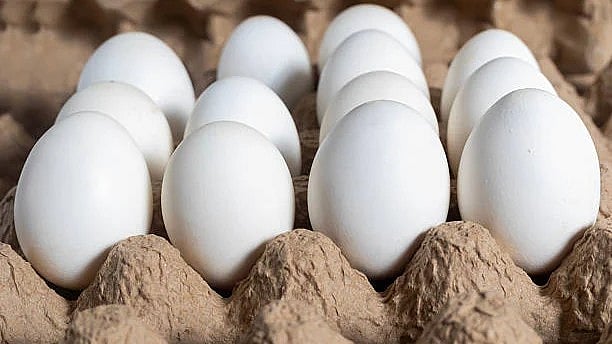
Representative image for eggs.
Credit: iStock photo
The festival season has arrived, with many fasting and offering prayers to the Goddess. While devotees usually refrain from meat, alcohol and other intoxicants during this auspicious period, due to their own beliefs and customs, certain parts of the country have announced ban on the sale of certain non-veg items.
In a recent update, Bhopal imposed restrictions on the sale of eggs, fish and meat during the Navratri festival.
SDM Divya Patel told news agency ANI that the city will observe the Navratri celebrations with a ban on the sale of these items, starting from September 22 and concluding on October 2.
Internet reacts
Soon after the ban was announced, it triggered reactions on social media. Internet users debated over the city-wide ban during the nine-day festive period. Netizens expressed them opinions over "forced" food bans during such occasions.
"Sale of Eggs banned in Bhopal, MP from Sep 22 to Oct 2 for Navratri, along with Fish & Meat. Started with Beef, now reached to Eggs. What next? Locking up Non-Veg eaters," one user commented.
"Good we shd respect everyones religious beliefs.but plz ban alcohol and pork also (sic)," another wrote.
A few users suggested for further bans in the light of the auspicious period. X users asked the authorities to curb the sale of condoms, alcohol, and even onion and garlic during these days.
Similar ban was also imposed in other parts of Madhya Pradesh, including Maihar and Umaria.
Meanwhile, the UP government released a similar order for its temple city, Varnasi. It instructed all meat and fish shops and also slaughterhouses to remain closed druing the Navratri festival. A PTI report quoted Municipal Corporation Public Relations Officer Sandeep Srivastava as saying, "Any violation of the directive will invite action against concerned vendors as per municipal regulation."
CPI(M) MP Amra Ram spoke to media ageny IANS and said, "Meat is consumed in large quantities across the country; more than 50% of the population consumes it. What anyone eats or wears is a matter of personal choice. The Indian Constitution guarantees everyone the freedom to decide for themselves. Who will follow which religion, or what practices they observe—that is entirely up to them..."
